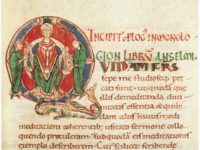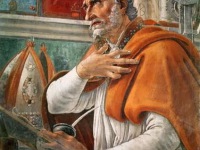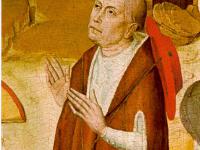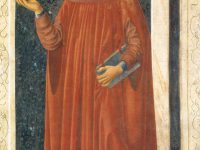Saint Anselm of Canterbury – Father of Scholasticism
Probably on April 21, 1109, Benedictine monk, abbot, philosopher and theologian of the Catholic Church Anselm of Canterbury passed away. He was canonized, is often considered the founder of scholasticism and is the main representative of early scholasticism. Since 1720 he has carried the honorary title “Father of the Church”. “Ergo domine…credimus te esse aliquid quo nihil maius cogitari possit.” (Therefore, lord…we believe that you are something than which nothing greater can…
Read more





